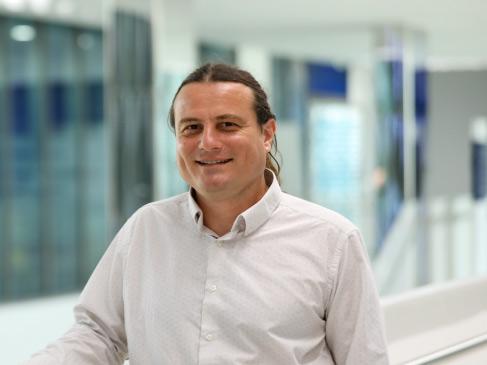
Acting Deputy Department Chair of Natural Language Processing at the
Mohamed bin Zayed University of Artificial Intelligence
Given the recent proliferation of disinformation online, there has been growing research interest in automatically debunking rumors, false claims, and "fake news." A number of fact-checking initiatives have been launched so far, both manual and automatic, but the whole enterprise remains in a state of crisis: by the time a claim is finally fact-checked, it could have reached millions of users, and the harm caused could hardly be undone.
An arguably more promising direction is to focus on analyzing entire news outlets, which can be done in advance. Then, by checking how trustworthy the outlet that has published it is, we could fact-check the news before it was even written (which is what journalists do). Dr. Nakov will show how this is done in the Tanbih news aggregator, which aims to limit the impact of "fake news," propaganda, and media bias by making users aware of what they are reading, thus promoting media literacy and critical thinking ways to address disinformation in the long run. In particular, the Tanbih news aggregator develops media profiles that show the general factuality of reporting, the degree of propagandistic content, hyper-partisanship, leading political ideology, general frame of reporting, stance with respect to various claims and topics, as well as audience reach and audience bias in social media.
Another important observation is that the term "fake news" misleads people to focus exclusively on factuality, and to ignore the other half of the problem: the potential malicious intent. Thus, the tool detects the use of specific propaganda techniques in text, e.g., appeal to emotions, fear, prejudices, logical fallacies, etc. Dr. Nakov will demonstrate the Prta system, another media literacy tool, which got the Best Demo Award (Honorable Mention) at ACL-2020; an associated shared task got the Best Task award (Honorable Mention) at SemEval-2020.
Finally, at the time of COVID-19, the problem of disinformation online was elevated to a whole new level as the first global infodemic. While fighting this infodemic is typically thought of in terms of factuality, the problem is much broader as malicious content includes not only "fake news," rumors, and conspiracy theories, but also promotion of fake cures, panic, racism, xenophobia, and mistrust in the authorities, among others. Thus, Dr. Nakov argues for a holistic approach combining the perspectives of journalists, fact-checkers, policymakers, social media platforms, and society as a whole, and presents recent research in that direction.

